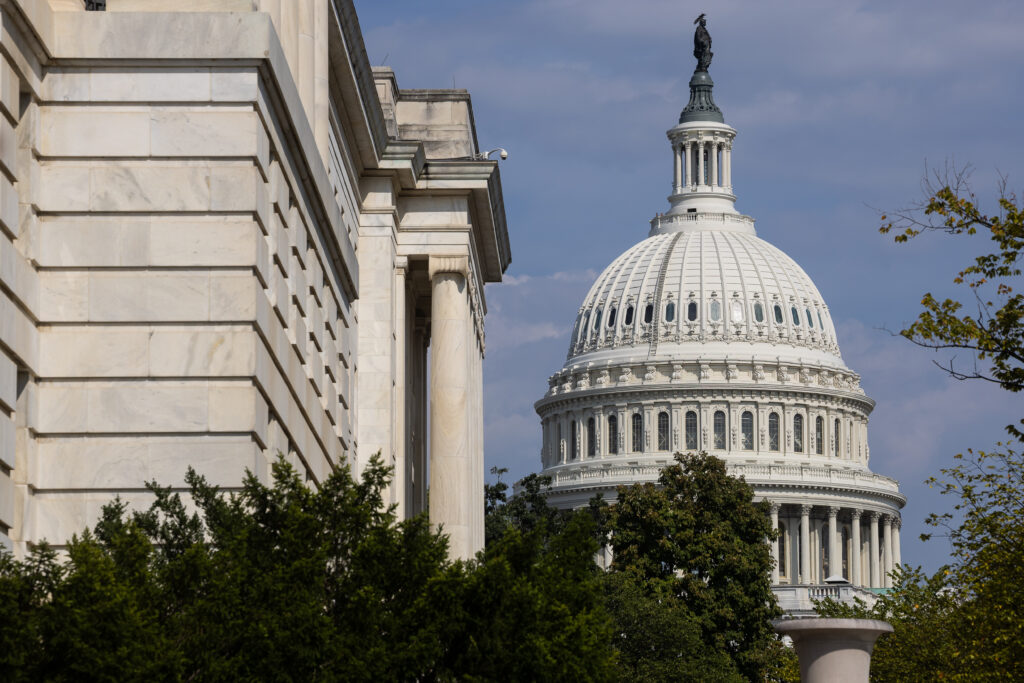A government shutdown is looking increasingly likely, and Congress is set to experience the self-inflicted pain of the institution’s inability to pass a spending bill to fund its own operations.
During the last, partial shutdown, which began at the very end of 2018 and concluded 35 days later, a legislative branch appropriations bill had already been enacted, which allowed Capitol Hill to function without interruption.
This time, none of the annual government funding measures have been signed into law. Those who worked in the Capitol complex under these same conditions in 2013, when the government was shuttered for 17 days, will recall extensive waits to enter office buildings, closed parking garages, skipped paychecks and tourists distraught over canceled tours.
Thirteen years later, things will look a little bit different. House and Senate employees, for instance, are now guaranteed backpay under law, even if they may miss a paycheck during a shutdown. That could lead to fewer furloughs, with lawmakers more confident that their staffer will eventually be made whole. But the bathrooms around the complex will still go uncleaned and it could require a longer walk to grab a cup of coffee.
Here’s a guide of what to expect on Capitol Hill if federal funding lapses after midnight Wednesday.
Who is ‘essential’
Unlike executive branch agencies that must follow guidance from the Office of Management and Budget regarding which workers are “essential” and which must be furloughed during a government shutdown, members of Congress can decide for themselves how many of their staffers can continue to work.
In the past — such as in the 2013 shutdown — many lawmakers deemed every staffer essential to keep them paid for the duration of a shutdown, while others went down to a skeleton crew. Since that time, a 2019 law was enacted guaranteeing backpay for all federal employees whether they worked or not during a shutdown, meaning staffing in House, Senate and Committee offices will likely be operating at full strength.
Many staffers will feel the pinch
Just because every congressional aide will eventually get paid doesn’t mean they won’t feel the effects of a missing paycheck. A handful of staffers, given anonymity to candidly discuss personal finances, said they will be seeking assistance from family or other sources to pay their rent in the event of an extended shutdown.
Furloughed employees will still get their health and life insurance benefits. The Congressional Federal Credit Union offers “furlough relief loans” and Navy Federal Credit Union and USAA have similar policies for members. However, the student loan repayment assistance program offered by the House and Senate will halt operations during the shutdown.
Limits on perks and side gigs
The House Ethics Committee typically puts out a call in advance of a shutdown warning members and staff that “during a lapse in appropriations, you remain subject to all ethics rules and regulations” — that is, be careful not to accept gifts from anyone, even if you’re strapped for cash. The Ethics panel specifically reminds aides there are rules against taking on ad hoc jobs with their bosses’ campaigns while still employed with a congressional office.
Staffers are also not allowed to collect unemployment benefits during a shutdown.
No backpay for contractors
Scores of contract workers that run the eateries and other services on Capitol Hill — among the lowest-paid workers on the Capitol campus — will not receive backpay for wages lost during shutdown-related furloughs and closures. Food service workers, granted anonymity so speak candidly, said in interviews they were stressed this week about missing paychecks.
Lawmakers can’t refuse salaries
Members of Congress will get their paychecks because the Treasury Department is constitutionally obligated to send them. Some lawmakers don’t like the optics of getting paid during a shutdown and put out statements insisting they are declining their compensation. Technically, however, all they can do is request their checks be held until the shutdown is resolved, or donate their salaries later to a cause of their choosing.
Logistical woes
Capitol Police will maintain full staffing in order to continue prioritizing “life safety” operations but will likely adjust its numbers when stationing officers at the various doors around the House and Senate office buildings. That means staffers and visitors should brace for long security lines at a limited number of entry points.
The Capitol Visitors Center will be closed and no tours — by the professional “red coat” guides or staff — will be permitted, although lawmakers will be allowed to take small groups around the complex.
The House staff gym will be closed. The members’ gym will be open, “but will not be staffed or cleaned.” Custodial services will also be discontinued for the private bathrooms many members have in their office suites.
Classic amenities like the barber shop and shoe shine station will also be closed. The in-house dry cleaner will “remain open temporarily to allow for customers to pick up items” but then, likewise, shutter.
Where to eat in a shutdown
The Longworth House Office Building will be the food hub on the House side, with both the cafeteria and Starbucks open — the cafeteria from 7:30 a.m. to 3 p.m., and Starbucks from 7 a.m. to 5 p.m. The unstaffed convenience stories will remain open, but all other House eateries will be closed.
Across the Capitol, Cups and Co. in the Russell Senate Office Building is also expected to stay open, but other guidance on Senate food options have not been finalized.
Read the full article here
